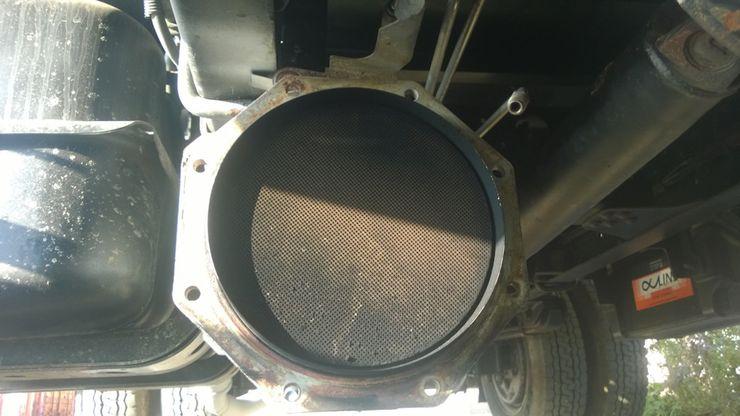
What will result in the removal of the particulate filter: the pros and cons
The particulate filter in a car with a diesel engine complements the catalyst, which eliminates the unpleasant smell of the exhaust and reduces the concentration of harmful substances in it. Up to 90% of soot settles in the particulate filter, which reduces the burden on the environment. However, it happens that this element of the car's exhaust system fails. And many drivers prefer to get rid of it without installing a new one instead. The AutoVzglyad portal found out how it is actually better - with or without a filter.
Diesel fuel is significantly different from gasoline. There is a different principle of ignition, and different thermal loads on the engine, and a completely different fuel system, and many more different “ands” that relate not only to the characteristics of the “heavy fuel” itself, but also to its processing by a diesel engine.
As with any internal combustion engine, the diesel engine has a special focus on the environment. To do this, its exhaust system has a catalyst and a particulate filter that complements it. The latter retains up to 90% of the soot formed during the combustion of diesel irrigation.
However, nothing is eternal. And although modern particulate filters are equipped with a cleaning system or otherwise burning (regeneration) - when, through various mechanisms and changes in the injection system, the exhaust gas temperature rises and the accumulated soot simply burns out, it happens that the particulate filter becomes clogged or fails irrevocably. And some drivers simply get rid of it without installing a new one instead. But what does this lead to later?
Let's start with the fact that as it becomes dirty, the throughput of the particulate filter is greatly reduced. This, in turn, is reflected in the driving characteristics of the car and its power. The car simply loses its former pressure and agility. But if it's just a filter, you can remove it. At the same time, as the owner of the car sees it for himself, there are only solid pluses in the procedure for getting rid of the particulate filter.
For example, the wallet will be healthier for exactly the price of a new filter. Fuel consumption and engine load are reduced, because operating temperatures are reduced. The car starts to go as it did not go, leaving the gates of the native automobile plant. And the need for regeneration of the particulate filter is eliminated.

However, few people talk about the dangers of the particulate filter removal procedure. And meanwhile, it also has negative sides.
Firstly, if the decision to get rid of the filter came to the car owner at a time when the car is under warranty, then it simply flies off. And further, the automaker and dealers have every right to refuse him the free repair of a particular unit or unit that falls under the guarantee. And the turbine is the first to be targeted, which will receive an increased load, because its operating speed will increase significantly.
Secondly, the presence of the particulate filter is monitored by different sensors. If you remove it simply by cutting it out, then the electronic brain of the car will certainly go crazy, for example, failing to calculate the difference in temperature and pressure at the inlet and outlet. And it will give an error, or even put the car into service mode. The same will happen with the regeneration system, which is activated not only as the filter becomes dirty, but also based on the fuel spent. Moreover, if the sensors do not show changes, this process can be repeated many times. And this requires fuel, which, of course, will lead to its overrun. And constant high temperatures will leave no chance for an empty exhaust system - it will burn out.
Thirdly, a car without a particulate filter automatically becomes a source of increased pollution. With each press of the gas pedal, clouds of terribly smelling black smoke will escape from its exhaust pipe. And in those countries where they closely monitor the environment, such a machine can deliver a lot of unpleasant surprises to the owner and his wallet. And these are just some of the disadvantages that await the one who decides.
As a result, we can say that the price of getting rid of a particulate filter can become very high. Because the procedure itself requires not only to cut it out, but also to work with the brains of the car. And qualitatively, and not with a screwdriver and a hammer. In addition, the resources of some units are reduced due to increased loads. In general, it's not worth it. Especially when the real experts in this area, as they say, the cat cried.
